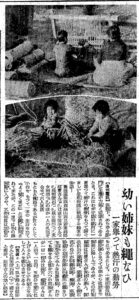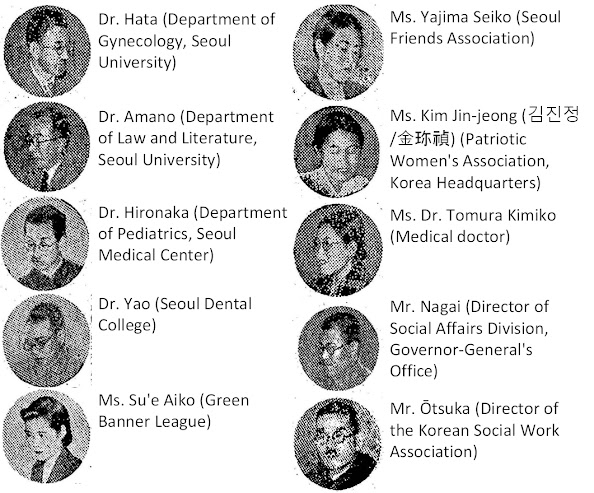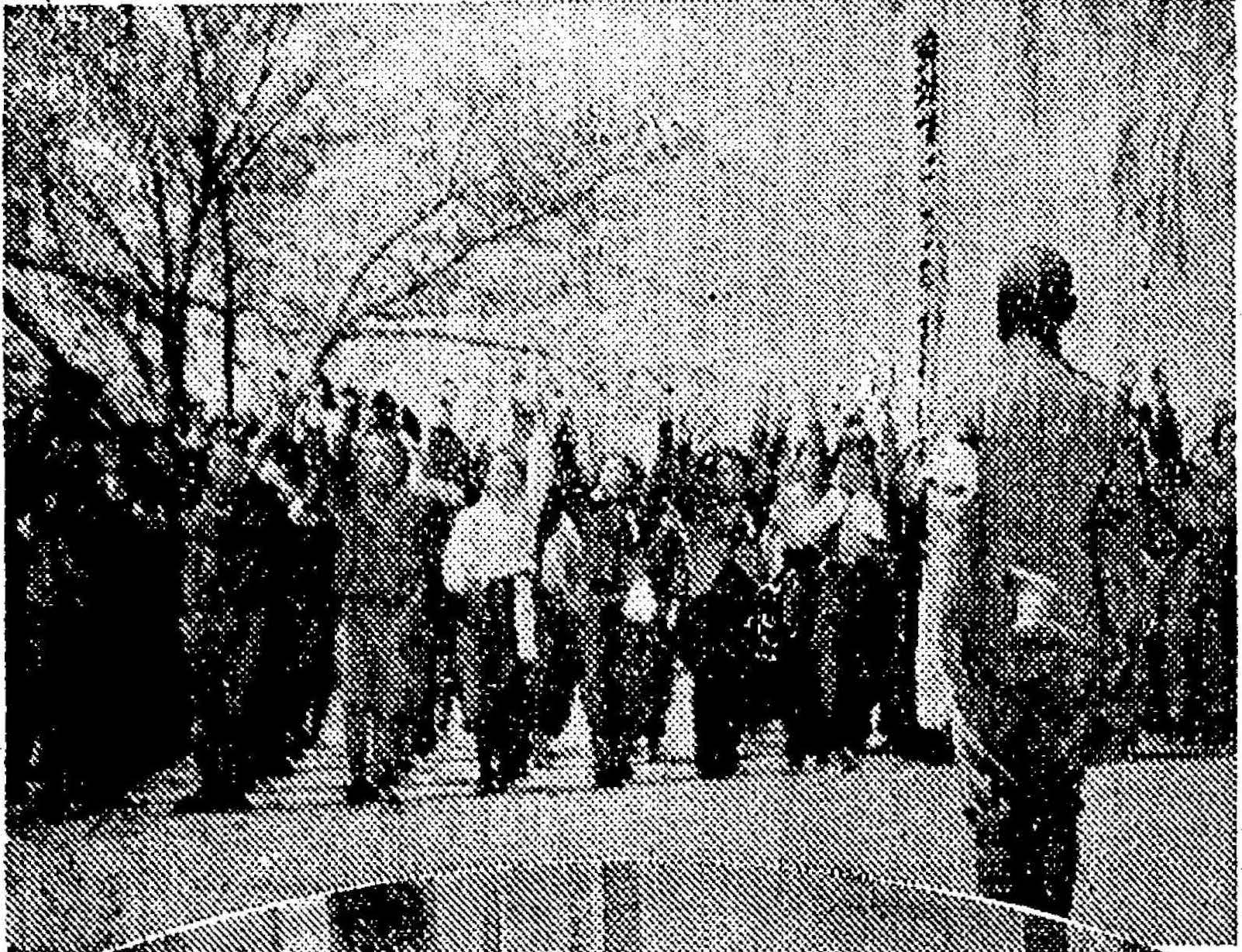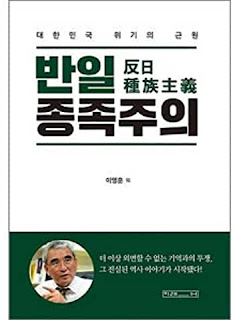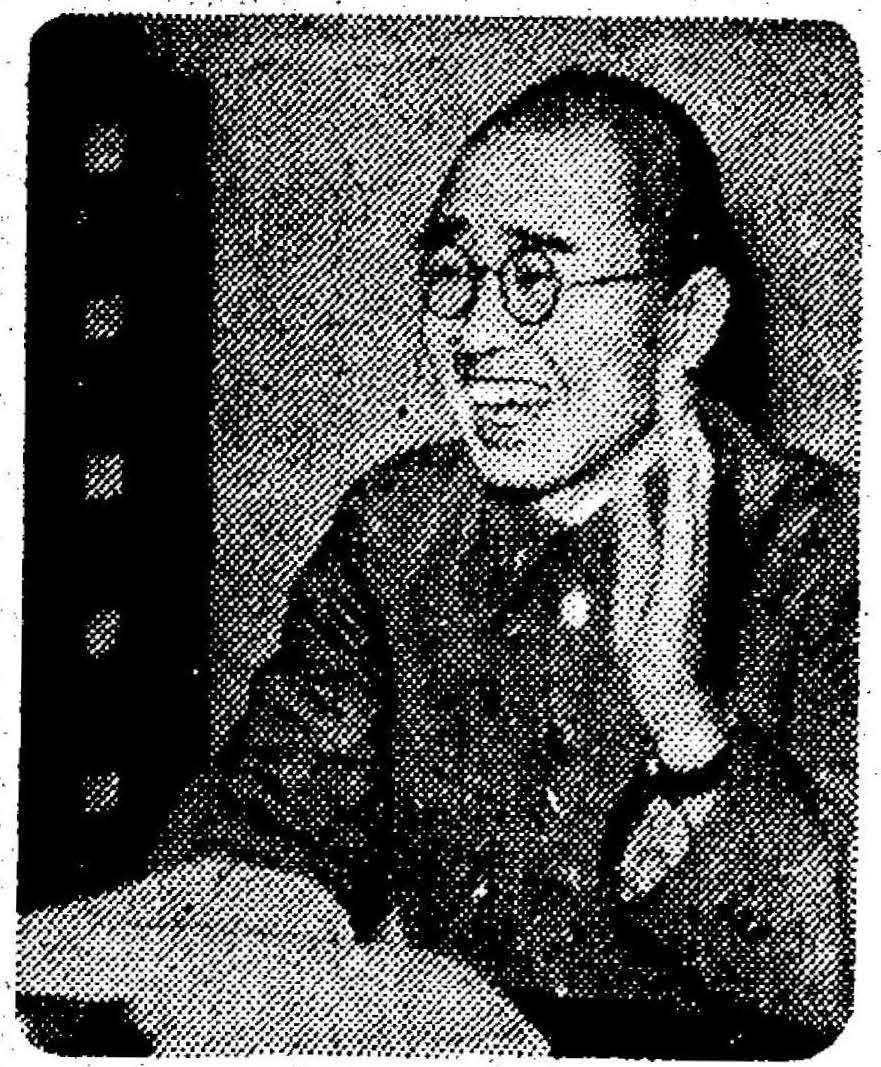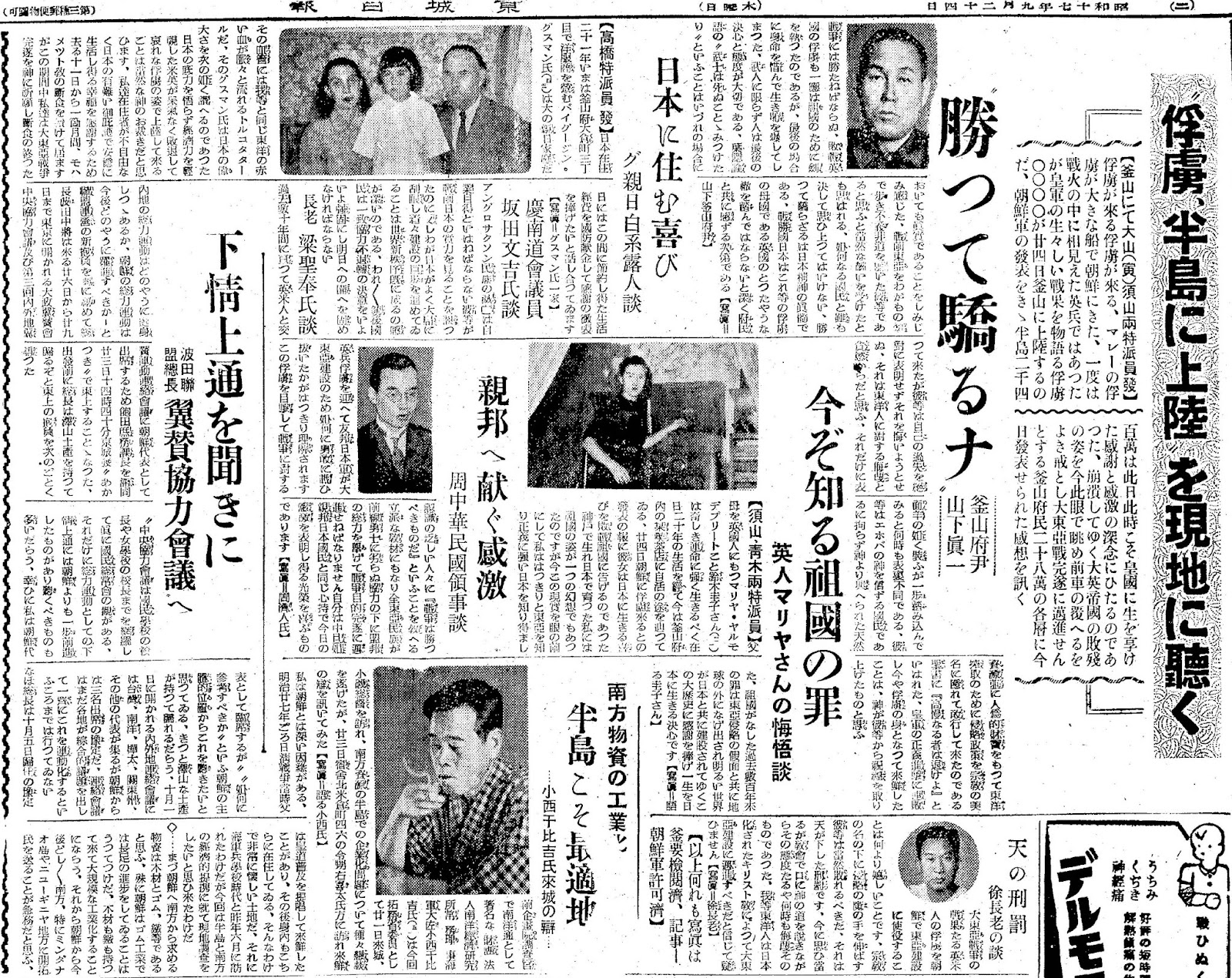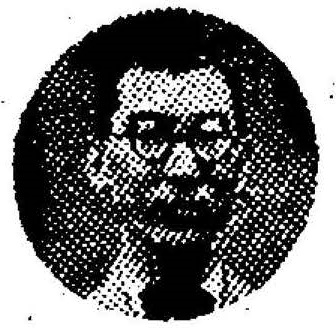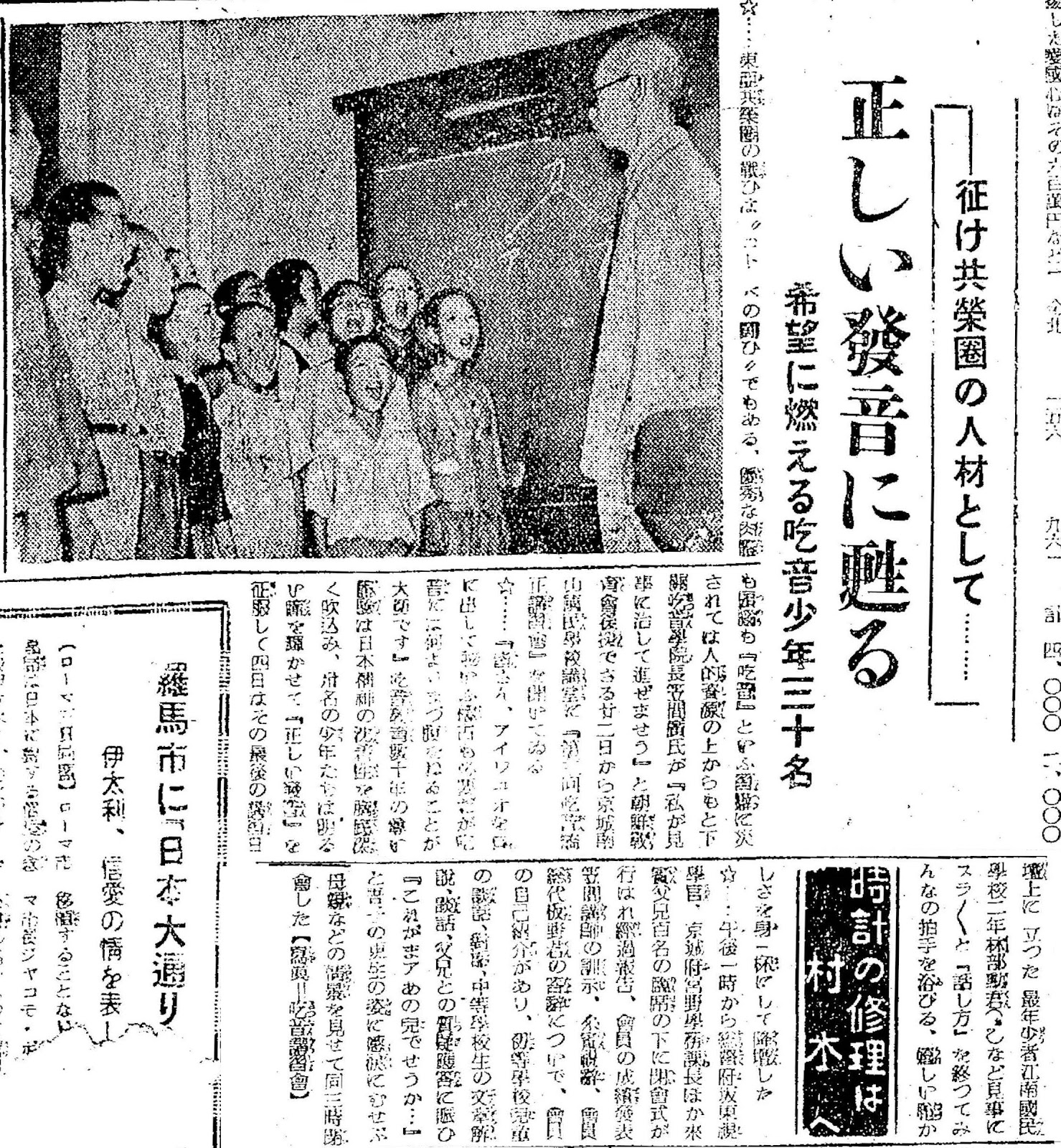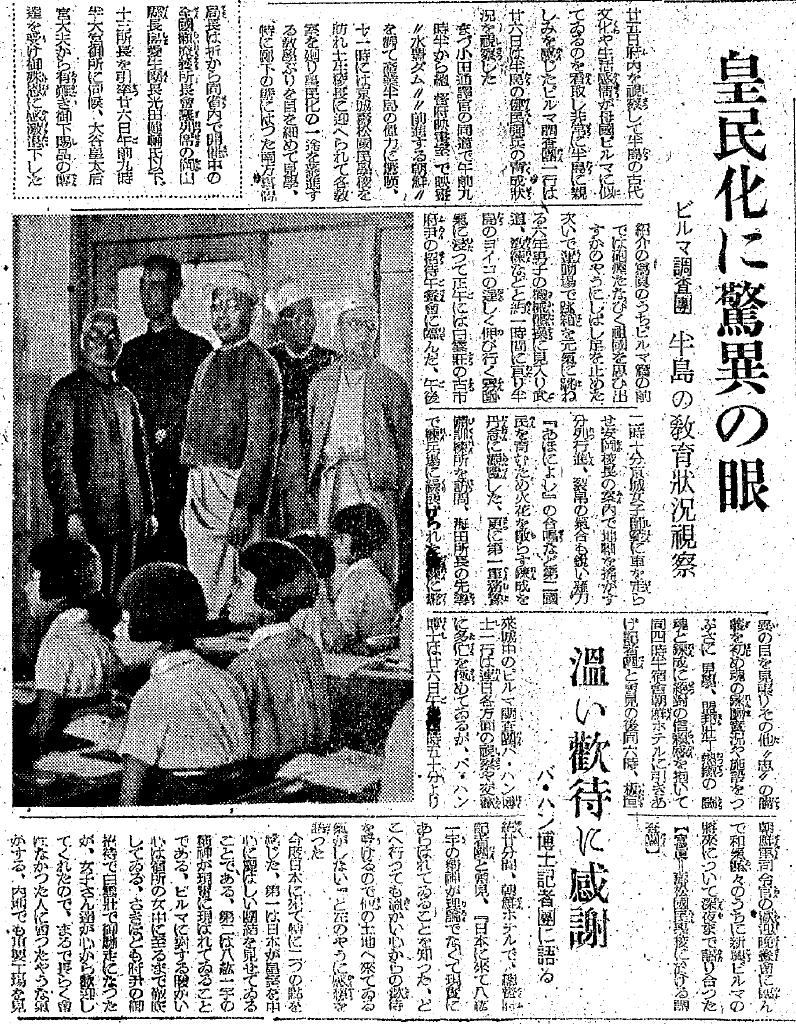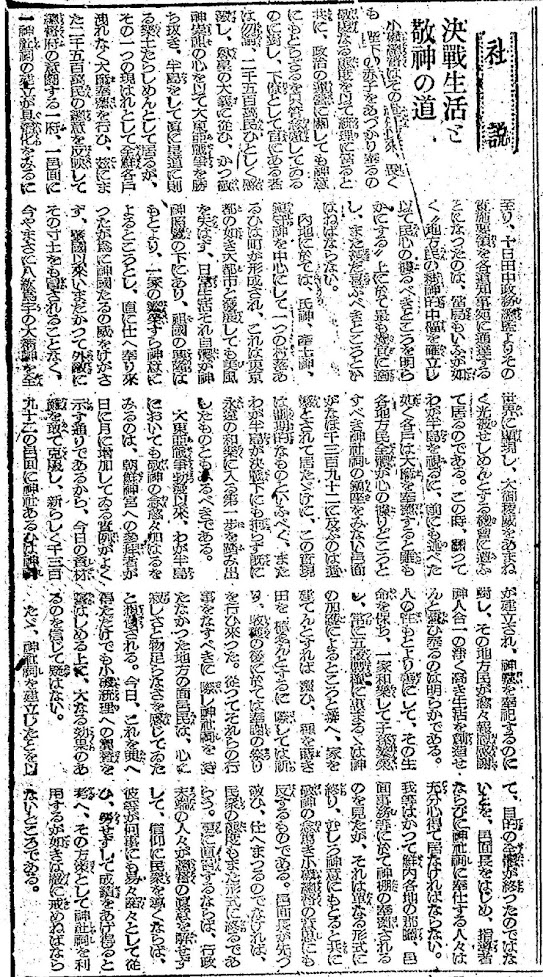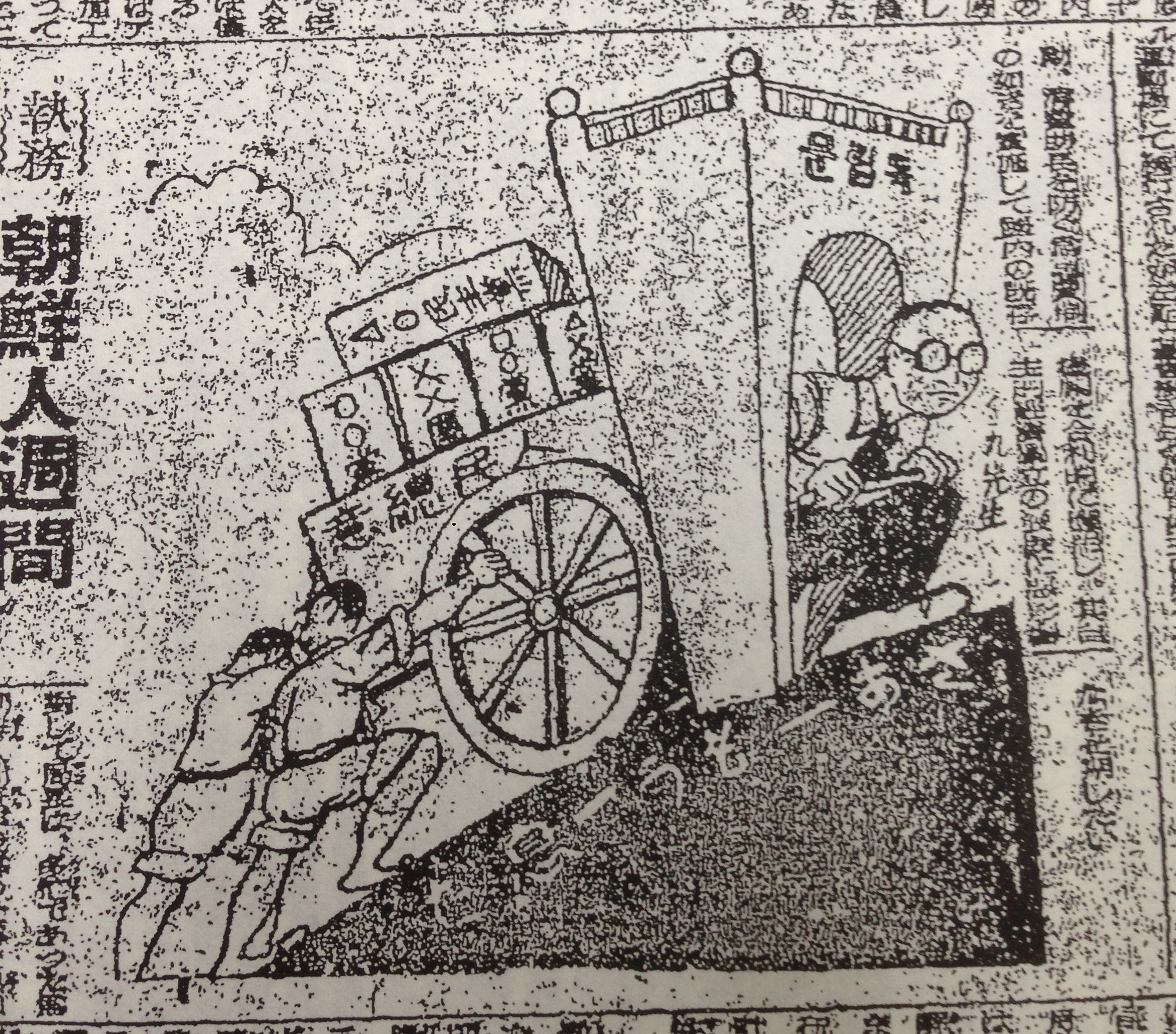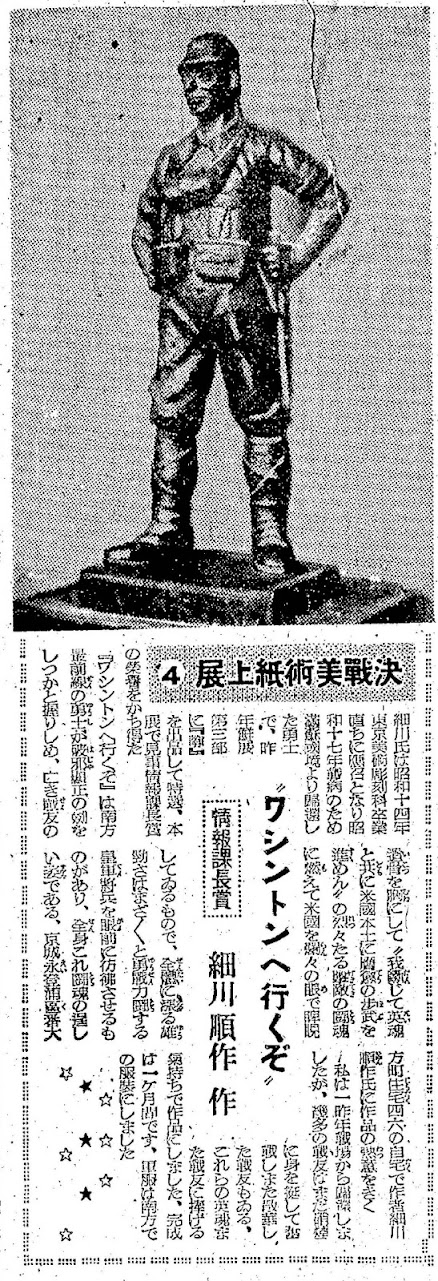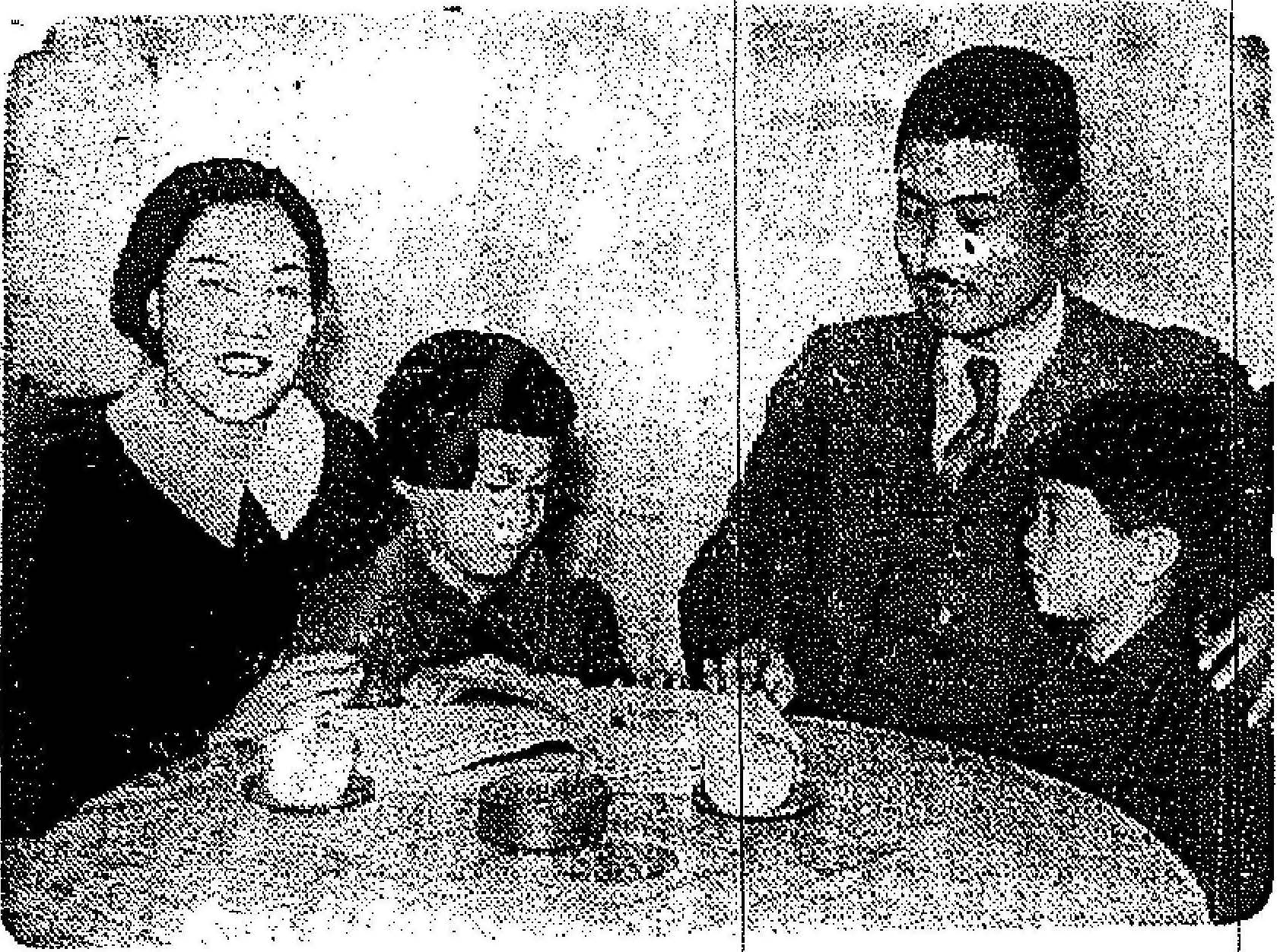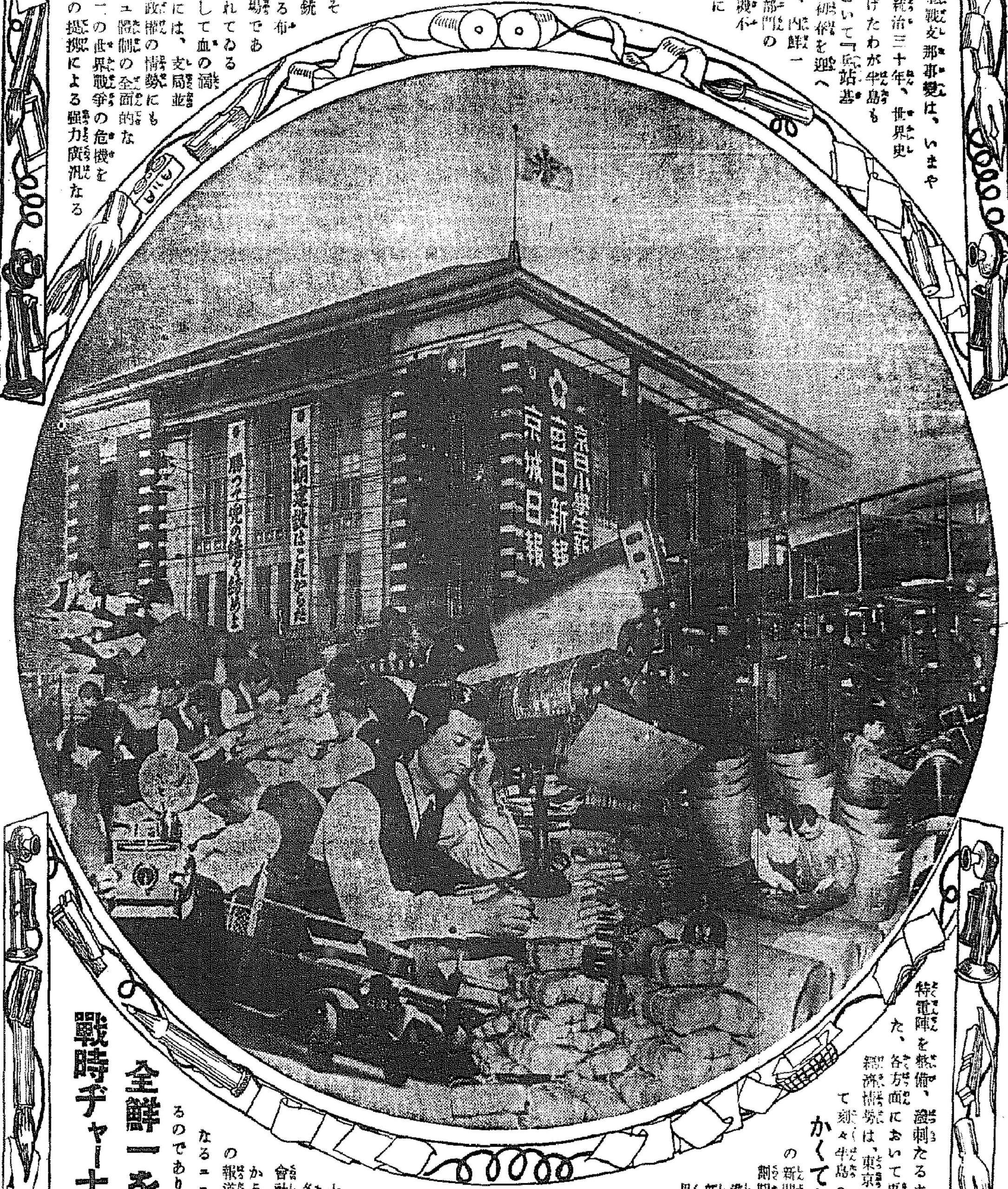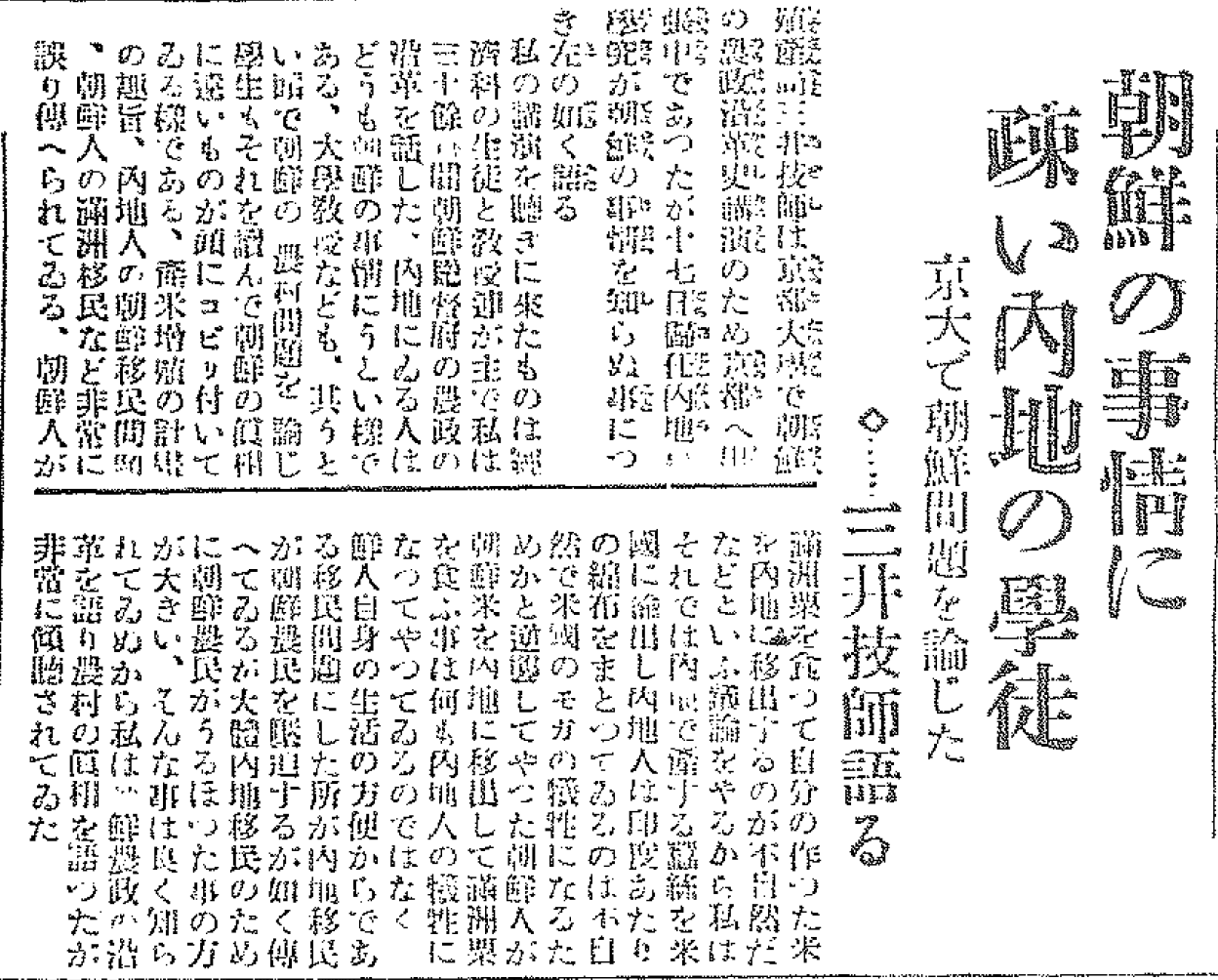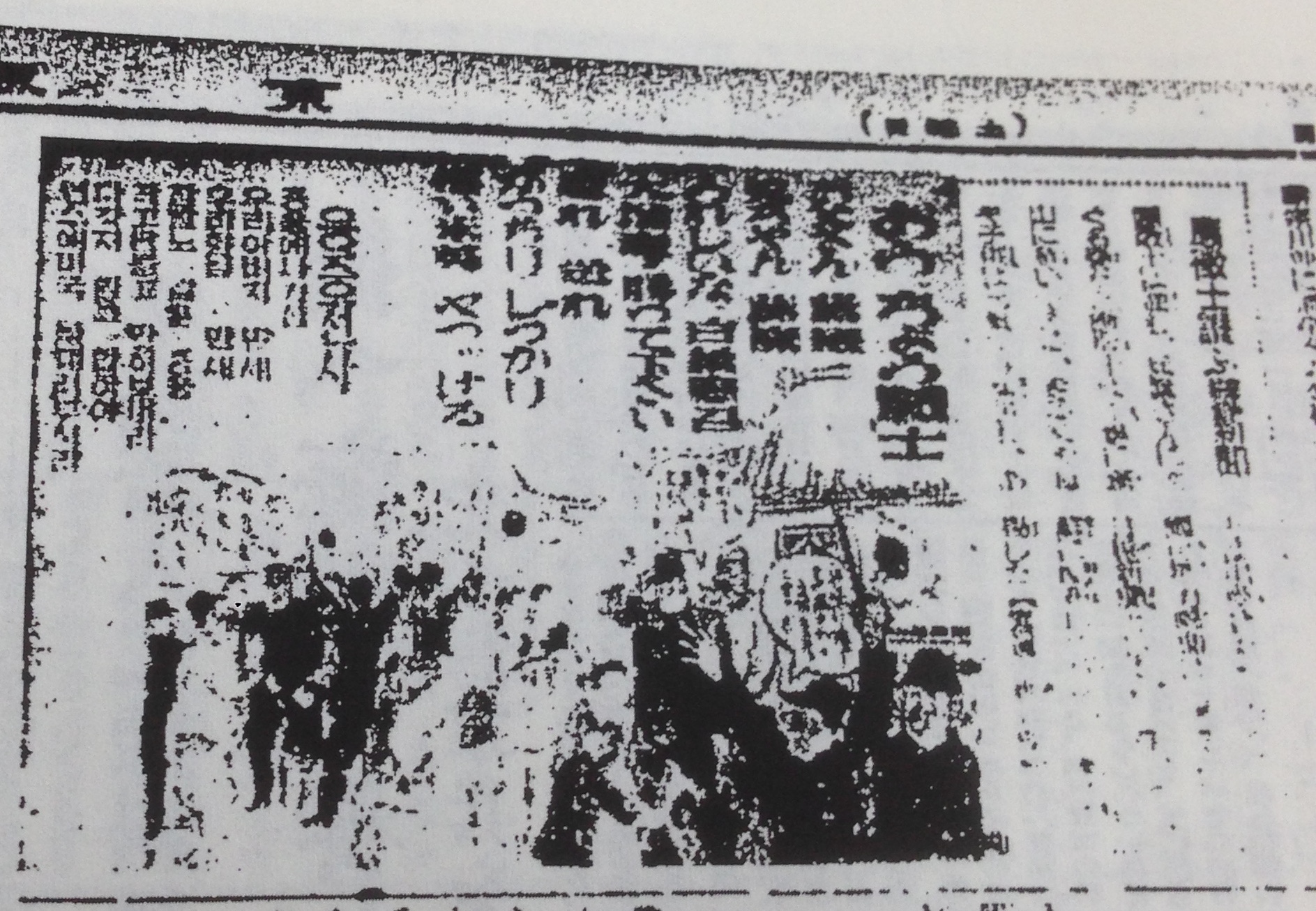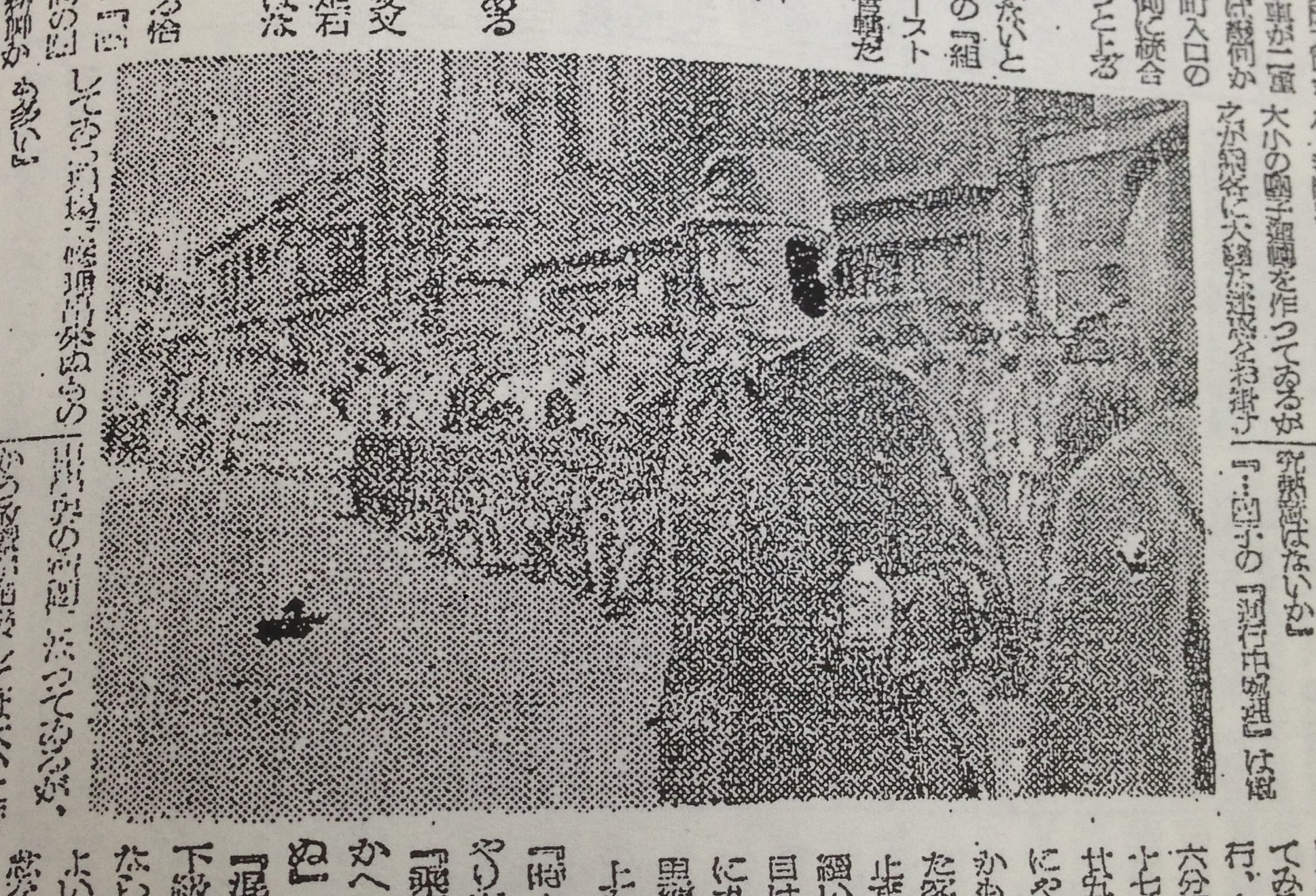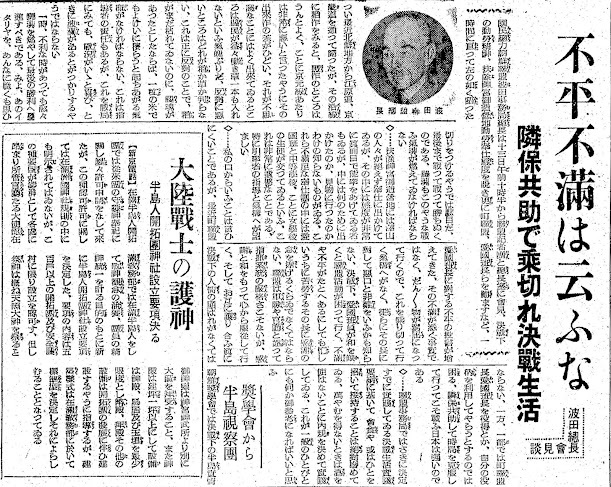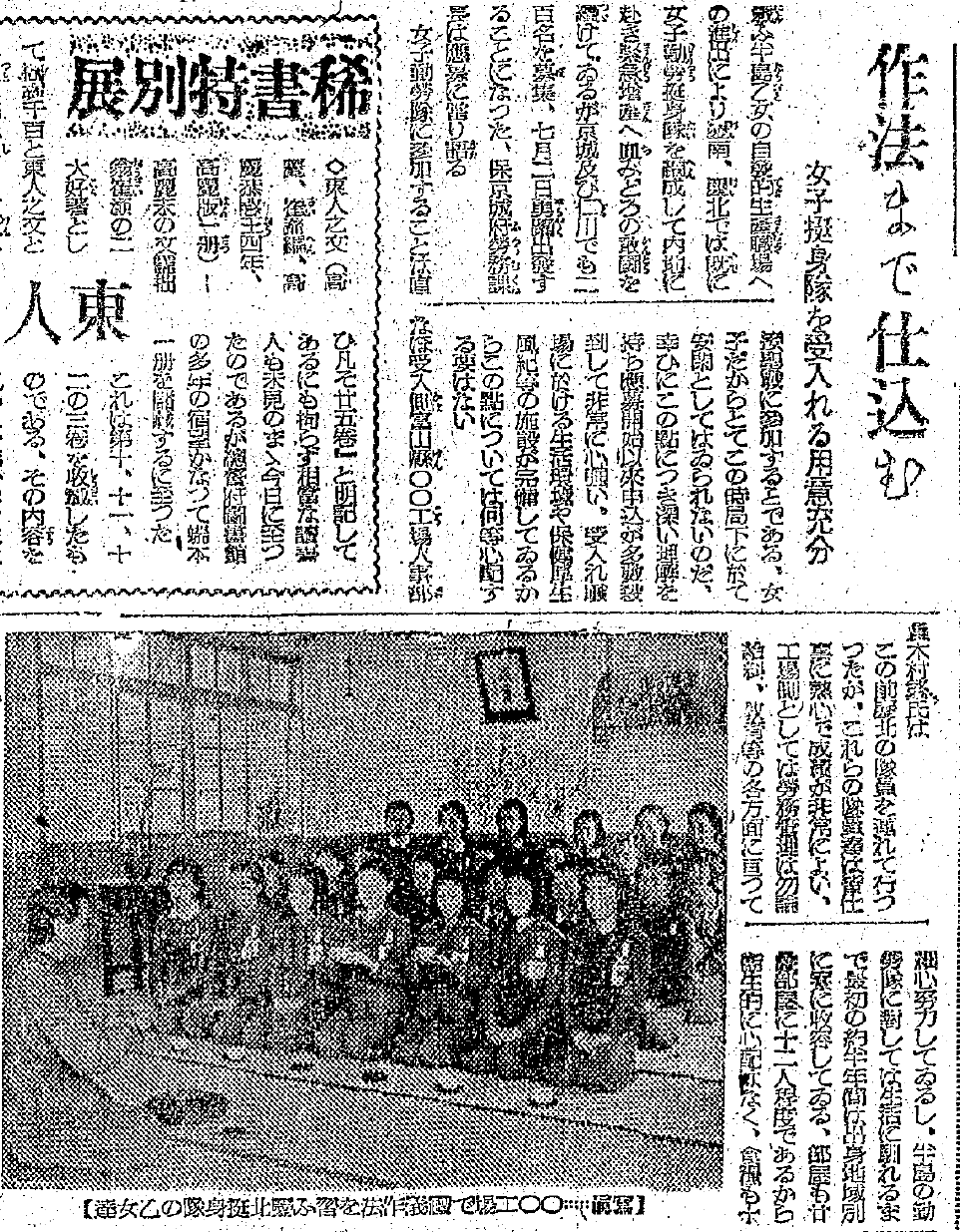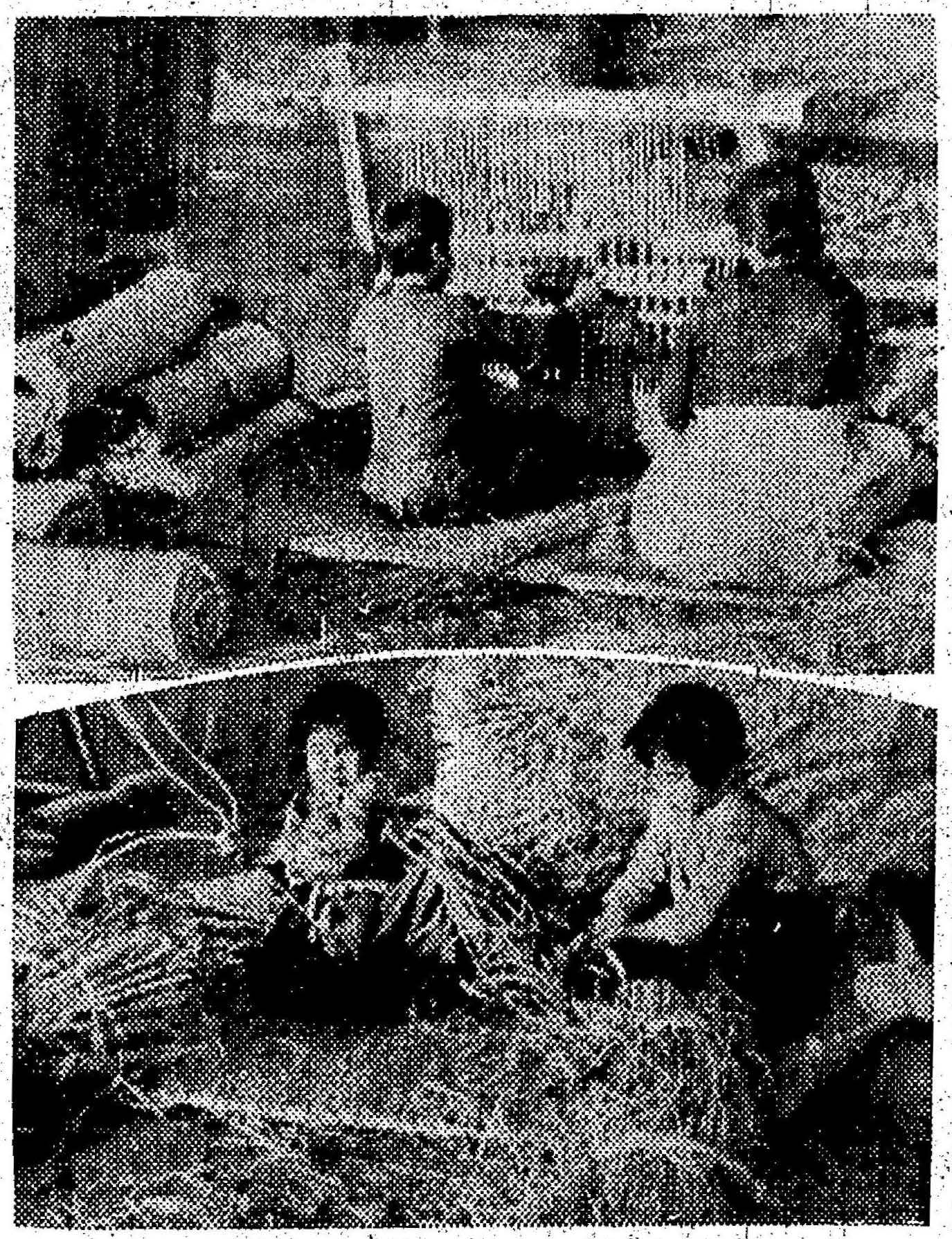
Korean farming family weaving straw bags known as ‘gamani’ (가마니) in Korean or ‘kamasu’ in Japanese, traditionally used to transport manure, coal, salt, grain, etc. (Haeju, February 1943)
2023-02-14
575
467
In this story, the reporters covered an impoverished farming family in Haeju (in present-day North Korea) which was using traditional techniques to make sturdy straw bags known as ‘gamani’ (가마니) in Korean or ‘kamasu’ in Japanese. They were traditionally made in the winter, and used to transport everything including manure, coal, salt, and grain. First, the straw is weaved into rope, and then the rope is used to weave the fabric that forms the bag. Nowadays, there are companies that make biodegradable bags out of jute or hemp instead.
This farming family may have been compelled by colonial authorities to become propaganda props for the newspaper. This fits the pattern of this newspaper taking photos of Korean farmers in awkward poses. Here are some examples:

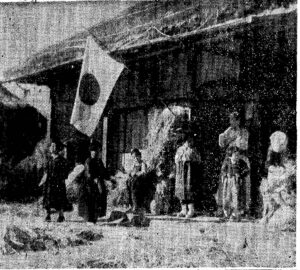
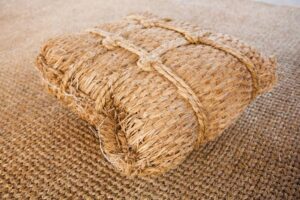
(Translation)
Gyeongseong Ilbo (Keijo Nippo) February 13, 1943
Even the young sisters are rope weaving
The whole family is working feverishly
[Haeju Telephone Report] In wartime, when the expansion of production is strongly desired in all sectors, there is a touching, elegant story of a farming family in a remote village on our Korean peninsula, which is devoting itself to production and national defense through the hard work and sweat of the whole family.
Mr. Takashima Ju-byeon (주변, 柱變) (46-years-old) of Yibam-ri, Gosan-myeon, Byeokseong-gun (벽성군, 碧城郡), Hwanghae-do, has a family of six, including his wife, Ok-soon (억순, 億順) (33-years-old), his eldest son Jun-seok (준석, 俊石)(15-years-old), his eldest daughter Bok-soon (복순, 福順) (8-years-old), his second daughter Nam-soon (남순, 南順) (6-years-old), and an infant.
They are a poor farming family, but they make their living diligently by doing small farm work, and they are known in the neighborhood as a hard-working family. As the family entered the off-season in the winter, they decided that idleness and inactivity were the basis of laziness. Therefore, the entire family mobilized as a straw bag weaving team to work from early in the morning until late at night. Ju-byeon is the guerrilla unit which purchases the materials and supplies the products, Ok-soon and Jun-seok are the mother-and-son bag weaving team, and sisters Bok-soon and Nam-soon are the young school-aged rope-weaving team. They all sincerely work very hard. Nam-soon, who is only six, can reliably produce rope for one bag in one day. Bok-soon can easily produce rope for four or five bags in one day by herself. They are attracting admiration by displaying such dependable productivity.
Top photo: mother Ok-soon and son Jun-seok weaving straw bags. Bottom photo: young sisters Bok-soon and Nam-soon rope-weaving.
Source: https://www.archive.org/details/kjnp-1943-02-13
(Transcription)
京城日報 1943年2月13日
幼い姉妹も縄ない
一家挙って熱汗の勤労
【海州電話】決戦下、あらゆる部門に生拡が力強く切望されているとき、これはわが半島の僻村に一家挙って熱汗の勤労をもって涙ぐましい生産報国に精進する農家の佳話。
黄海道碧城郡高山面立岩里高島柱變さん(四六)は妻女億順さん(三三)、長男俊石(一五)、長女福順(八つ)、次女南順(六つ)のほか一人の乳児を合せて六人家族。
もともと貧農であるが孜々として小作をもって一家の生計をたて、『よく働く家だ』と近隣に評判されて来たが、この一家では冬の農閑期に入るや、不労無為は怠惰のもとであるとして、一家総動員叺織部隊となって早朝から夜更けまで製造に勤しんでいるが、その作業編隊は柱變さんが資材の購入、製品供出の遊撃隊、億順さんと俊石君の母子が叺織部隊、福順、南順姉妹の幼少部隊は叺織用の縄ないを引き受けてみんな真摯敢闘。わけても縄をなう僅か六つの南順さんが一日一枚分は確実、福順さんは一人前で一日四、五枚分を楽に仕上げるという頼母しい作業力を示して人々を感心させている。
【写真=(上)叺を織る母億順さんと長男俊石君(下)縄をなう福順、南順さんの幼い姉妹】
